Last updated: August 22, 2022
Article
Conservation Diaries: Subria Spencer, Promoting National Parks as Public Health Resources
-
Conservation Diaries: Subria Spencer, Promoting National Parks as Public Health Resources
Listen to this episode of Conservation Diaries as Subria Spencer shares her journey to the National Park Service Office of Public Health.
- Credit / Author:
- NPS
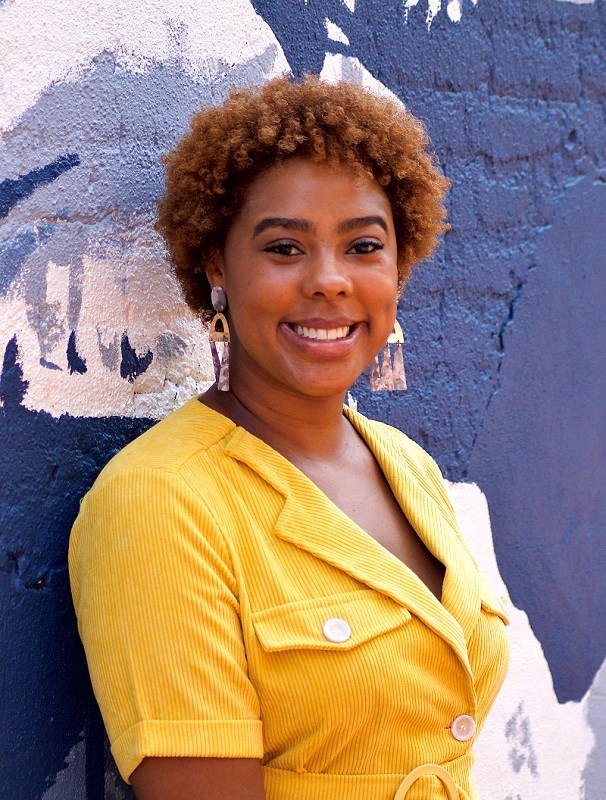
NPS Photo
Meet Subria Spencer, a public health professional serving as Deputy Liaison and Communication Specialist for the National Park Service Office of Public Health (OPH), in Washington, DC.
Subria is a native of Auburn, Alabama. She went to the University of Alabama at Birmingham, UAB, where she got her bachelor's in Public Health. She went to school for Biology, but then decided to focus on Public Health because she ultimately wanted to help communities achieve better health outcomes by providing access to basic resources, like food.
Subria focused much of her time during and after completing school on looking into local food environments, the issues that surround them, and identifying solutions to provide increased access to fresh, affordable options.
"I'm very passionate about helping people meet those very basic needs in life. If we don't have food, if we don't have those things, we can't function.”
Before joining the National Park Service, Subria was part of the Centers for Disease Control and Prevention (CDC) Public Health Associate Program. This is a competitive, paid two-year training program that selects candidates to help address public health gaps at local, state, federal or even tribal organizations across the US and its territories. After completing the program, PHAP graduates are qualified to apply for jobs with public health agencies and organizations.
Subria was originally placed in the US Virgin Islands working with the USVI Department of Health right after Hurricanes Maria and Irma. Due to the changing environment Subria was relocated to DC, with the National Park Service Office of Public Health, which Subria knew little to nothing about.
“I'm sure I had visited [national] parks but didn't realize that there was an agency responsible for managing sites, monuments, and different units. [And] I definitely did not know that there was an Office of Public Health. This is a very niche sort of job and sort of role.”
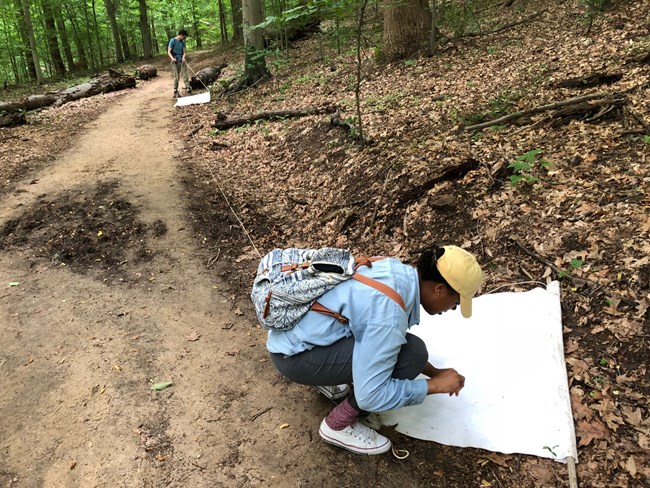
NPS Photo
The Office of Public Health (OPH) is responsible for promoting and advancing health in national parks. Functioning like an internal health department, the OPH provides agency specific public health capability through disease surveillance and response, on site evaluation/hazard analysis, consultation on parks systems and even policy guidance. OPH professionals also assist park superintendents and land managers in promoting the positive health benefits of nature. The OPH also promotes the health and well-being of park visitors through Healthy Parks Healthy People, a global movement that harnesses the power of parks and public lands as a health resource for all.
From 2018 to 2019, Subria’s role as a CDC Associate included collaborating with branch chiefs on projects focused on infectious disease epidemiology and surveillance, environmental health and health promotion.
“Health departments function for the community. They're responsible for disease control, for community events, for helping people get access to certain resources and for just ensuring overall wellbeing. The Office of Public Health does that same work within the office or within the National Park Service.”
Subria was instrumental in helping the Office of Public Health improve their methods of communication by developing an external website and revamping their internal site. She also worked alongside interns with the Greening Youth Foundation to help create and facilitate programs through Your Park! Your Health!, an OPH initiative committed to building community relationships, promoting healthy lifestyles, inspiring connectivity with nature and establishing a sense of belonging in parks.
After completing her assignment with the CDC program, she was hired as the Deputy Liaison and Communication and Education Specialist for the National Park Service at the Office of Public Health in 2019. Her hiring was unique because the office was able to create a position for her, and that is something that depends on host sites and funds.
Subria has become a champion of public parks and their positive impact on health. She believes our health, wellbeing, finding happiness, and being connected to nature are all essential to our life.
In her role, she leads and coordinates communications and education efforts to advance the goals of all programs within the Office of Public Health. She focuses on advancing communications efforts as they engage with public health service officers on the field who are responsible for protecting and promoting health and focusing on engaging visitors and employees in the outdoors and its benefits.
“We all have this natural connection to the outside. When we're stressed, when we need a break from life... we go on vacations, we go to the beach, we go outside, we go for a hike, we want to stand in the sun, we want to feel the trees, we want to touch water. And so, I think being able to just do that work in my everyday job is really rewarding.”
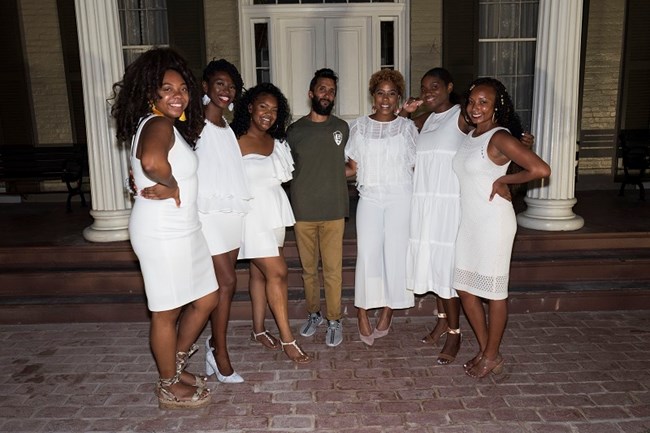
NPS Photo
A vital aspect of Subria’s job is to promote the health and well-being of diverse populations. To make sure we are redefining the perception of national parks as havens of inclusion and make sure people from underrepresented and historically marginalized communities can find a sense of belonging at national parks.
She has been part of projects, such as Power of Parks for Health, that focus on opening dialogues around equity, health, healing, and wellness. She was also a producer of the Twenty & Odd National Park Service short film, which serves as a tool to inform, highlight, and educate the nation on the trauma, resilience, and beauty of the African American experience in this country.
“The legacy of the [National Park Service] is dependent upon us having what for some may feel like difficult conversations, but for others are just the reality of life. The realities that individuals and communities face each day in maybe wanting to engage, wanting to get outside, not knowing how or not seeing the pathway to really be able to do what we say is provided for everyone. Hopefully these are the first of many efforts and conversations in the future.”
Subria believes there is still a lot to be done, and a lot of conversations to be had, to be able to truly represent everyone within the National Park Service, and make sure everyone can feel welcomed and enjoy their national parks.
“When we look at issues of climate change, of mental health, or at health in general, the individuals that are being impacted the most are the same communities that have been historically marginalized from these green spaces, from recreational activities, from the ability to engage with themselves and to learn about themselves through nature. It's critical that we are hiring and working to ensure that what we're doing here is reflective of what society, what America, what our communities need.”
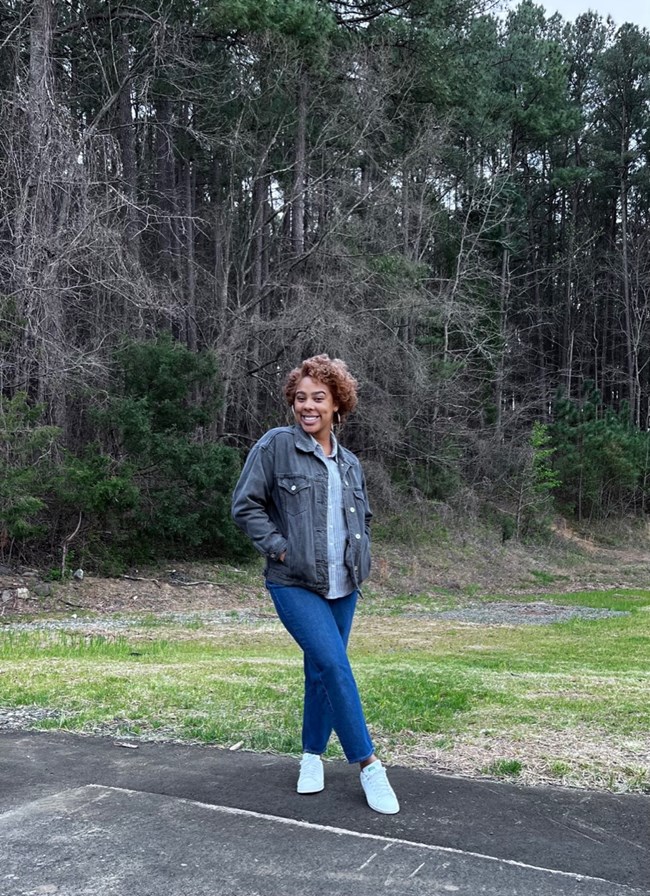
NPS Photo
While Subria’s journey to the National Park Service was unique and not easy to follow, Subria says something that helped her in her federal job application was having done AmeriCorps VISTA, where she focused on poverty-related issues. The one-year long volunteer program allows members to earn federal non-competitive eligibility, giving members an edge in the federal hiring process.
Subria also wants young people to know that there are other important ways they can get involved with the National Park Service and the Office of Public Health, such as looking for internship positions with the Greening Youth Foundation. This partnership places GYF interns from diverse backgrounds in national parks across America, where they work in every aspect of resource management. Subria believes it’s essential that the National Park Service continues to engage with the youth to be able to achieve change and progress.
“There are so many skills and so much knowledge that exists out there that we need. We need new thoughts. We need new minds. We need people that are going to think about the issues in a different way that are going to come to the conservation table and think about a new way to maintain a certain species in parks or to focus on how we're addressing invasive plants... We need those new thoughts at the table.”
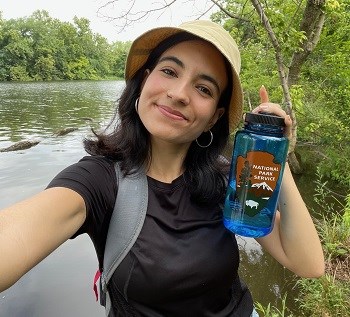
NPS Photo
Meet the Host
Nicole Segnini created the Conservation Diaries podcast series in 2021 during her Latino Heritage Internship Program internship with the National Park Service's Office of Communications in 2021. Venezuelan-born, she knows firsthand Latinx communities' passion and commitment to conservation and wanted to engage the rising generation of stewards—of all cultural backgrounds—to picture themselves in conservation careers or working in the National Park Service. Nicole used her background and experience in journalism, social media influencer, and television news producer to create the Conservation Diaries podcast series to bring out the stories of youth in the National Park Service from their own perspectives.
"There are so many young people in underrepresented and minority communities across the country who care so much about conservation, historical preservation, nature, wildlife, the outdoors, and our beautiful parks, and I think it's important that we elevate and amplify their voices and their important work. They are working hard to protect and preserve our natural, cultural, historical, and recreational resources and I believe that work is usually overlooked. That's why I wanted to start something like this." - Nicole Segnini
